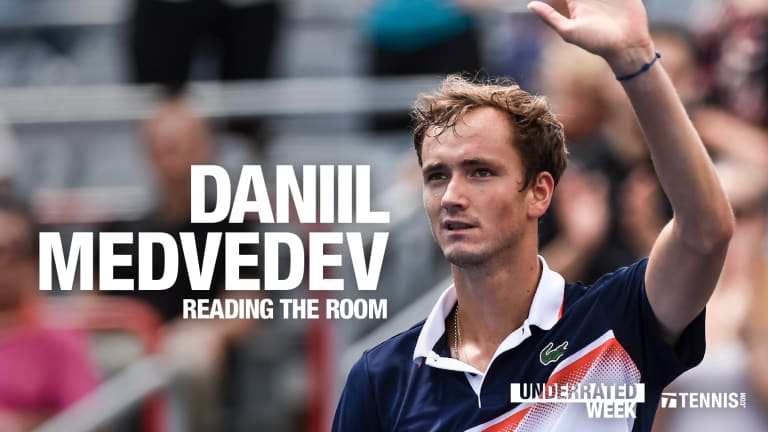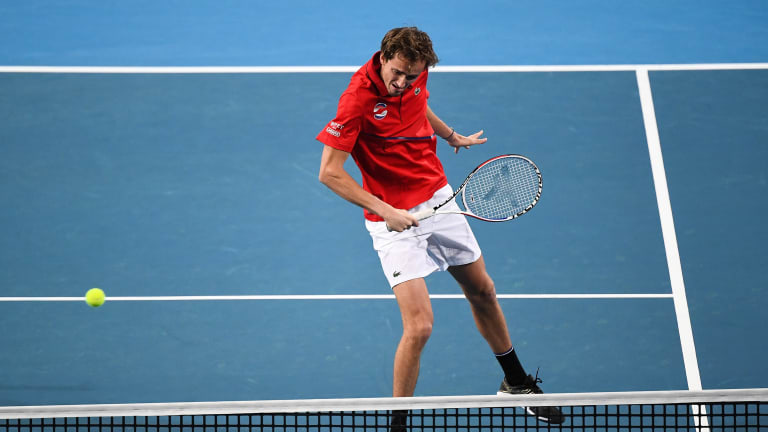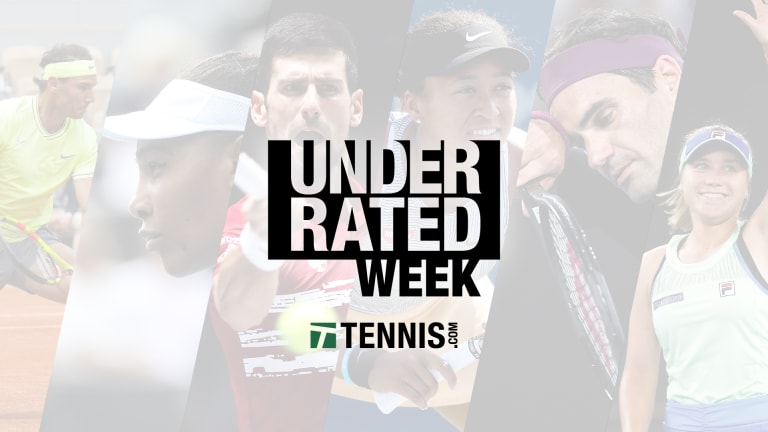Underrated Traits of the Greats: Daniil Medvedev and reading the room
By May 08, 2020Tennis.com Interview
It's the most wide open clay season on the ATP Tour in 20 years—and the players are here for it
By Apr 24, 2025Ranking Reaction
Carlos Alcaraz rises back up to No. 2 on ATP rankings after winning Monte Carlo title
By Apr 14, 2025ATP Monte Carlo, Monaco
Daniil Medvedev vs. Alex de Minaur: Where to Watch, Monte Carlo Preview, Betting Odds
By Apr 09, 2025ATP Monte Carlo, Monaco
The original Next Gen—Zverev, Medvedev, Tsitsipas, Berrettini—soldiers into a key clay swing
By Apr 09, 2025Social
PHOTOS: Andrey Rublev, Marat Safin serve all the moments at Monte Carlo practice
By Apr 07, 2025ATP Monte Carlo, Monaco
WATCH: Cramping Daniil Medvedev limps over finish line vs. Karen Khachanov in Monte Carlo
By Apr 07, 2025Tennis.com Interview
No logic, just a feeling: Andrey Rublev "always knew" he wanted to work with Marat Safin
By Apr 07, 2025The Business of Tennis
Top ATP, WTA players pen letter to Grand Slams seeking greater share of revenue
By Apr 04, 2025Miami, USA
Jannik Sinner rivals fail to capitalize on No. 1's absence
By Mar 24, 2025Underrated Traits of the Greats: Daniil Medvedev and reading the room
From wallboard to big server, from villain to gracious Grand Slam runner-up, the Russian knew just what role to play during his breakthrough run in 2019.
Published May 08, 2020
Advertising

Underrated Traits of the Greats: Daniil Medvedev and reading the room
Advertising

Underrated Traits of the Greats: Daniil Medvedev and reading the room
© DANIEL CARSON DCIMAGES.ORG
Advertising

Underrated Traits of the Greats: Daniil Medvedev and reading the room